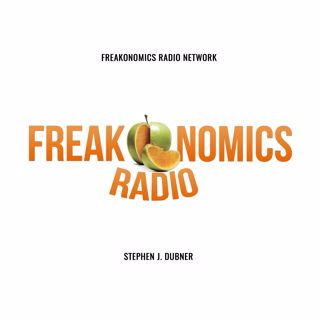Om avsnittet
America’s top colleges are facing record demand. So why don’t they increase supply? (Part 2 of our series from 2022, “Freakonomics Radio Goes Back to School.”) SOURCES:Peter Blair, professor of education at Harvard University and faculty research fellow at the National Bureau of Economic Research.Zachary Bleemer, assistant professor of economics at Princeton University and faculty research fellow at the National Bureau of Economic Research.Amalia Miller, professor of economics at the University of Virginia.Morton Schapiro, professor of economics and former president of Northwestern University.Miguel Urquiola, professor of economics at Columbia University. RESOURCES:“Elite Schools and Opting In: Effects of College Selectivity on Career and Family Outcomes,” by Suqin Ge, Elliott Isaac, and Amalia Miller (Journal of Labor Economics, 2022).“Why Don’t Elite Colleges Expand Supply?” by Peter Q. Blair & Kent Smetters (NBER Working Paper, 2021).“Lori Loughlin Pleads Guilty via Zoom in College Admissions Case,” by Kate Taylor (The New York Times, 2020).Markets, Minds, and Money: Why America Leads the World in University Research, by Miguel Urquiola (2020).“To Cheat and Lie in L.A.: How the College-Admissions Scandal Ensnared the Richest Families in Southern California,” by Evgenia Peretz (Vanity Fair, 2019).The Case Against Education: Why the Education System Is a Waste of Time and Money, by Bryan Caplan (2018).“The World Might Be Better Off Without College for Everyone,” by Bryan Caplan (The Atlantic, 2018).“Are Tenure Track Professors Better Teachers?” by David N. Figlio, Morton O. Schapiro, and Kevin B. Soter (NBER Working Paper, 2013).“Estimating the Payoff to Attending a More Selective College: An Application of Selection on Observables and Unobservables,” by Stacy Berg Dale and Alan Krueger (NBER Working Paper, 1999)."Report on the University’s Role in Political and Social Action," by the Kalven Committee (1967). EXTRAS:"What Exactly Is College For? (Update)," by Freakonomics Radio (2024).

